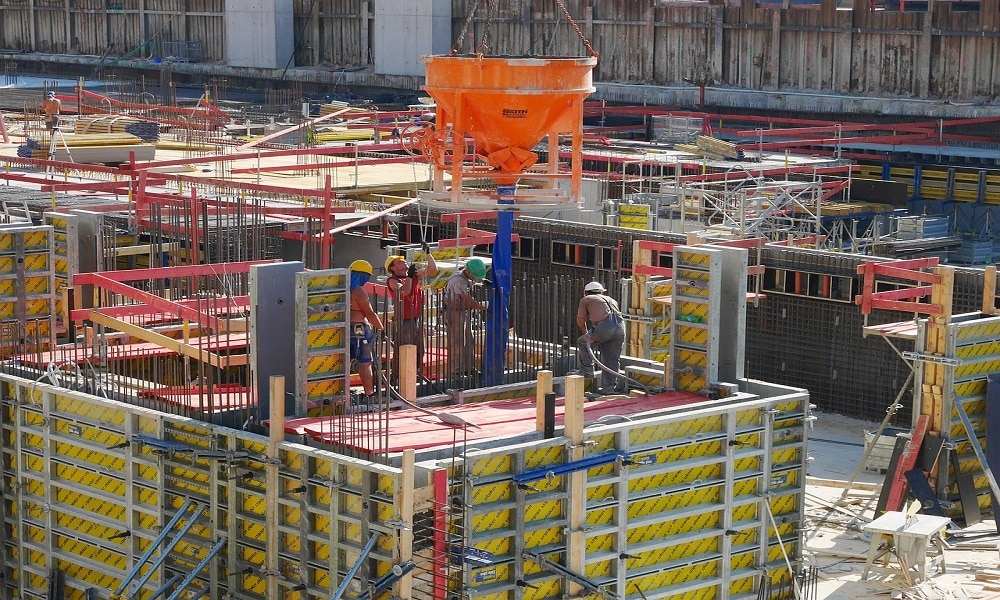Managing a construction project requires careful planning, clear communication, and efficient work. Whether you are working on a small renovation or a big commercial build, each project has its challenges. To reach your goals, it’s important to stay organized, meet deadlines, and keep everyone on the same page. Having the right strategies can help.
Following the best practices, you can keep construction projects on track and complete them on time. Here are some strategies to ensure your construction projects run smoothly.
Develop a Detailed Plan
Every great project starts with a solid plan. This plan must lay out the project’s boundaries, schedule, budget, resources, and any possible problems.
Begin by dividing the project into smaller stages, each with specific tasks and goals. Ensure team members have clear responsibilities, so everyone understands what they need to do. A backup plan for unexpected issues helps you handle surprises without throwing off the project. A well-made plan acts like a guide, keeping the team on track and ensuring everything is covered.
Use Construction Software
Construction software is changing how modern projects are managed. These tools combine all essential information, so you can track budgets, schedules, and resources in real time.
For instance, project managers can use dashboards to see progress, connect with teams through built-in messaging, and keep essential documents in one place. Many construction software options also provide analytics to find areas for improvement and make better decisions. Construction software helps you stay organized and reach project goals efficiently by making operations smoother and offering helpful insights.
Prioritize Communication
Clear and consistent communication is essential for any construction project. Informing all stakeholders keeps everyone aligned and reduces misunderstandings or delays.
Schedule regular meetings to discuss progress, address concerns, and share updates. Use email, phone calls, or project management tools to ensure everyone gets the message. Encouraging open dialogue creates a team atmosphere where problems can be solved quickly and efficiently.
Monitor Progress Closely
Keeping an eye on a project is progress is key to spotting issues early. Regular check-ins and site visits help you compare what’s happening with what’s planned.
Use tracking tools or software to monitor productivity, resource use, and budget. If something doesn’t align, act quickly by reallocating resources or changing schedules. Staying proactive ensures the project runs smoothly from start to finish.
Manage Resources Effectively
Successful resource management cuts waste and increases productivity. It covers materials, labour, and equipment.
Plan the use of resources wisely to sidestep downtime or delays. Ensure materials arrive right when needed to save on storage costs while keeping projects on schedule. Also, workers’ hours should be aligned with different project stages to keep work flowing smoothly. Proper resource allocation reduces expenses and helps maintain project momentum.
Focus on Quality Control
Keeping the work quality high during the project is key to meeting clients’ expectations and avoiding expensive redo. Set clear standards from the get-go and let the team know about them. Check regularly at different stages of construction to spot and fix issues early.
Get feedback from workers and supervisors to ensure things stay consistent and any concerns are sorted out quickly. Focusing on quality improves the final result and builds trust with clients and stakeholders.
Build Strong Relationships
Building strong relationships with contractors, suppliers, and clients creates a helpful network for the project.
Keep communication open with contractors to solve problems together. Trusting suppliers can lead to better prices, reliable deliveries, and easier negotiations. These connections create a team spirit where everyone works toward the same goal.
Plan for Risk Management
Each construction project carries possible risks, like weather delays or unexpected cost changes. Spotting these risks early helps you plan and lessen their effects.
Do a risk assessment during the planning stage and keep it current as the project progresses. Make backup plans for important risks and assign team members to handle them. Preparing for challenges keeps the project on track and within budget, even if surprises arise.
Encourage Team Collaboration
Having a team that gets along well is crucial for any construction project. When everyone works together, problems are easier to solve, work becomes more efficient, and people feel more accountable for their tasks.
To promote teamwork, involve everyone in decision-making and planning. Keep chats open during meetings and use shared workspaces or construction software. This helps everyone stay updated and share their ideas. Acknowledging team successes, big or small, fosters a positive work environment. It keeps everyone driven and focused on the project’s goals.


